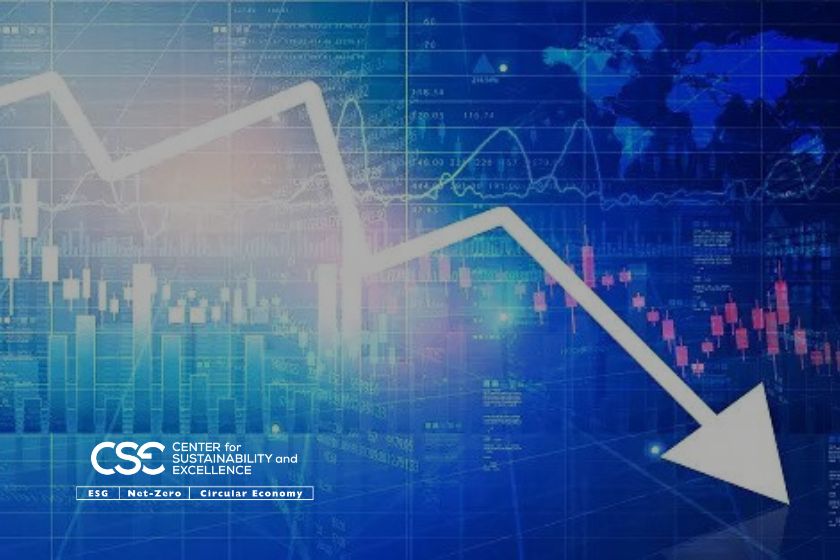In 2023, a combination of higher interest rates, improved supply chain conditions, and stricter credit policies successfully controlled inflation. As of May, the annualized Consumer Price Index (CPI) inflation rate has decreased for 11 consecutive months.
The fall of inflation can have several implications for companies’ operations regarding sustainability (ESG) in the sectors of Technology, Energy & Utilities, and Financial Services. Here are some how such a situation can affect these sectors:
Technology Sector:
– Cost savings: When inflation decreases, companies may experience cost savings on inputs such as raw materials, energy, and labor. This can provide technology companies with additional resources to invest in sustainability initiatives and R&D efforts focused on environmentally friendly technologies. In the opposite scenario, increased costs of raw materials and components used in technology products could result in higher prices for consumers and impact tech companies’ profitability.
– Innovation opportunities: With lower inflationary pressures, companies may have more financial stability and confidence to allocate resources towards long-term sustainability goals. This can drive innovation and the development of eco-friendly products, services, and solutions.
– Resilience against supply chain disruptions and higher consumer demand: Inflation leads to disruptions in the supply chains or higher transportation costs, which can affect the availability and affordability of technology products with lower consumer purchasing power.
Energy & Utilities Sector:
– Cost reduction in energy production: Lower inflation can result in decreased costs for energy production, including fuel, electricity, maintenance, and renewable energy sources. Energy and Utility companies may benefit from improved profitability and have greater flexibility to invest in sustainable infrastructure.
– Policy stability: A decline in inflation can promote policy stability and long-term planning in the energy sector. Governments may continue to implement and support sustainable energy policies and regulations, providing companies with a conducive environment for their ESG initiatives.
– Investment decisions: If inflation erodes the purchasing power of companies or investors, it may reduce their ability to finance and develop sustainable energy projects. Energy companies that provide innovative renewable energy projects may attract increased investment capital.
Financial Services Sector:
– Reduced borrowing costs: If inflationary pressures are significant, central banks may raise interest rates to curb inflation, which can raise borrowing costs for companies, financial institutions, and their clients. However, in case of lower inflation and reduced borrowing costs, companies can finance sustainable projects and initiatives, including green bonds or renewable energy investments.
– Risk management: Lower inflation rates generally lead to lower market volatilities and reduced uncertainties. Financial institutions may have more capacity to allocate resources towards ESG risk management and incorporate sustainability considerations into their overall risk frameworks.
While a decline in inflation can create promising conditions for sustainability efforts, companies should not solely rely on macroeconomic factors. A comprehensive and long-term commitment to ESG practices and a strategic approach remains crucial for companies to drive sustainable outcomes in their operations, regardless of inflationary trends.
Are you looking to demonstrate your commitment to sustainability and effectively market your sustainability initiatives, while fostering trust and credibility with customers, investors, and the broader market?
Gain the knowledge you need and the skills necessary to navigate sustainability challenges, align with industry best practices, and effectively communicate your sustainability efforts to stakeholders, by joining now for the upcoming Certified Sustainability (ESG) Practitioner Program, Advanced Edition 2023, Digital Version with Live Zoom Sessions, on September 21-22 & 25, 2023.







